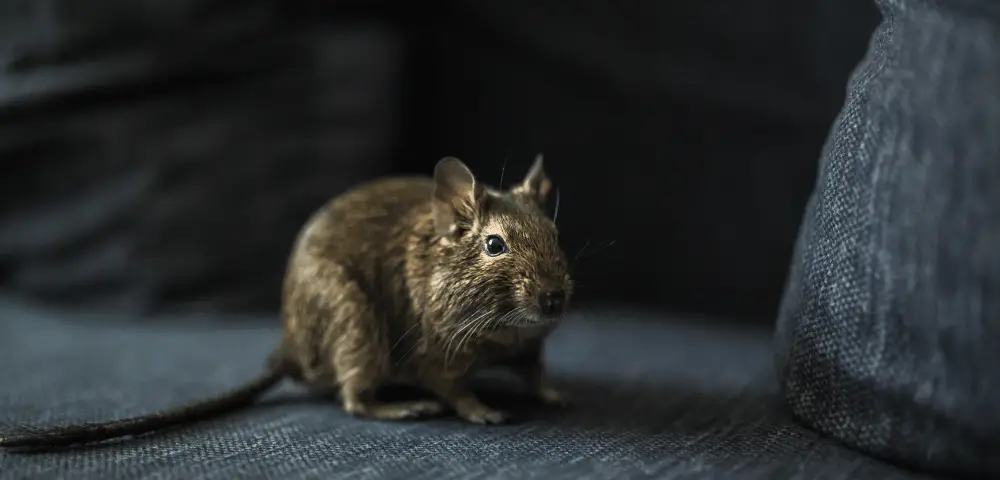Not everyone is welcome in our homes and our vehicles!
One of the most annoying guest presences in cars that don’t get discussed enough is a rodent infestation.
Especially in winter, they take up residence in your car and wreak havoc in it. Broken hoses chewed wires, and torn seats are just the beginning.
Many rats and rodents are disease-ridden and can be a threat to safety as well.
So how does one get rid of them and ensure that they remain out? Let’s find out!
What Kind of Damage can Rodents do to Your Car?
Naturally, any infestation can create both functional and aesthetic issues for your car.
Rodents generally chew through important wires, harnesses, and other important components in the vehicle, which makes it impossible to drive.
Furthermore, rats and mice are carriers of some serious diseases and may even cause allergies.
Rodents generally live around a vehicle’s air filter and turning on the AC/Heating can expose everyone to fecal droppings and all other nasty things you can think of.
On the functional front, there are numerous mechanical misfunctions that the presence of rodents can cause.
Chewed wires, hoses, and upholstery can cause small to serious issues depending on the area.
For instance, not being able to turn on the AC because of chewed wires would be an inconvenience, while being unable to control the steering wheel or brakes would be life-threatening.
Common Types of Rodents in Cars
When it comes to rodents, the first thing that comes to anyone’s mind is Rats and mice.
However, they are not the only problem for you. An infestation in your car can be because of mice or numerous other creatures.
Here are a few common examples of the type of infestations you’ll probably have to deal with. (Not all of them are rodents, but cause the same problem
Rats
Most common rodents can use your car’s vents and other channels to enter your car and make it their home. They multiply quickly and can cause the most significant damage to your car.
Raccoons
In most cases, raccoons will restrict themselves in the hood of your car but can still cause several problems for you. They won’t multiply as fast and are relatively easier to get rid of.
Roaches
Another infestation silently takes place. You’ll get to know about it when it’s too late and the only way forward is to contact pest control services.
Squirrels
Just like Racoons, they probably won’t come in the interior of your car, but they still, cause several problems.
Sometimes they do enter the cabin and you can kiss your car’s interior goodbye in such cases.
Cats
This is another infestation that is pretty common in the winter. Cats look for warmth on cold nights and the engine bay is the perfect place for them. However, it’s very dangerous if you start the car while a cat is inside.
Mice
From the perspective of a car infestation, both rats and mice are pretty similar.
Bed bugs
This is another common infestation that can cause a lot of problems. Bedbugs multiply very quickly and can quickly spread to your homes as well.
Termites
A general misconception is that Termites won’t be interested in cars as they eat wood, and most cars don’t have much of it. In reality, some types of termites have different eating patterns and can eat things like rubber and leather.
Why do Rodents Enter Cars?
You might wonder what exactly cars have that makes them so attractive to rodents.
The short answer is everything! They provide the perfect haven that can protect them from the cold and any predators lurking about.
Moreover, cars with food wrappers or actual food items inside can be a source of food for them as well, which is exactly what any rodent wants from its harborage.
Speaking of cold, many rodents find shelter in either the upholstery or the engine bay.
The fabric and rubber covering can be an excellent nesting place once things start to get really cold.
It’s also true that where you park your car also affects the frequency or chances of rodent infestation.
Parking near garbage dumps, blackberry bushes, or other ideal rodent locations can attract more rodents.
Similarly, the smell of rodent urine or droppings can also give a message to other rodents that your car is an ideal rodent habitat. Resultingly in enhancing your rodent problem.
Another factor that further enhances the rodent problem for vehicle owners, especially for owners of modern vehicles, is the use of bio-degradable materials.
The upholstery, joints, harnesses, and other parts are made from a soy derivative that has a unique attraction for all rodents.
Common Entry Points for Rodents in Vehicles
There are numerous points that rodents can use to gain access to your car.
Even if your car is locked or looks protected, there are high chances that it’ll be susceptible to a rodent infestation from the following areas:
- AC vents
- Cable holes
- Pedal shafts
- Steering columns
- Open windows
5 Ways to Keep your Cars Rodent Free
Rodents can enter your car because of many reasons but keeping them out is not too hard.
The only requirement is to stay vigilant and consistent while making sure that your car remains unattractive to those furry uninvited guests.
Here are 5 excellent habits you can adopt to keep any infestation at bay:
1. Maintain cleanliness
This is the most basic preventive measure you can take against the growing rodent population.
Maintain cleanliness around your parking area by actively looking for garbage piles and cleaning them.
Many people dump everything under the sky in their garages and these places become breeding grounds for roaches, rats, and other pests.
It’s only a matter of time before all those pests would start relocating to your car. So, address the problem proactively and ensure that no rodent starts considering your car as its home.
2. Make your car a no-food-zone
Just like the area, the car itself should be clean as well. Leftover food, wrappers, and other junk is an open invitation for rodents to start making a habitat there.
It’s ideal that you make your car a no-food zone.
However, it’s not always possible so it’s better to ensure that no wrapper or leftover food remains in the car overnight.
Moreover, you should also get your car washed at regular intervals to eliminate the chances of any errors.
3. Leverage the power of smell
The scent plays an important role in determining the rodent population in your vehicle.
Just like they are attracted by certain scents, there are a few that keeps them at bay.
Play the odors in your favor and try to use peppermint air fresheners in your car.
That scent is abhorrent for rodents and they generally steer away from such areas. Which is why you can leverage that smell to your advantage.
4. Use traps or poison to curb the rodent population
If all else fails, you always have the option of mouse traps, sticky paper, and poison to control the population of rodents.
However, be very careful while using rat poison as it could kill one in your car and allow it to leave a pungent smell.
Using poison becomes even more dangerous if you are a pet owner. Cats or dogs could ingest the poison you leave for rodents.
Moreover, predators can also eat dead rodents and can also get poisoned.
5. Block the ways of entry
Finally, another basic yet crucial way of ensuring that no rodents enter your home is to block all the entryways.
Generally, rodents get discouraged if they have to work too hard to gain entry.
While blocking may not work 100%, it surely has a significant effect.
Final Thoughts
Any infestation in your car can quickly become a huge problem requiring significant resources.
Keeping them at bay requires simple steps, but you have to be consistent and remain vigilant.
Rodents are adaptable creatures, and you have to adapt with them if you want to keep your car safe.



